When the dust finally settles on the coronavirus crisis here, there will be time to reflect on exactly what happened and how it was handled by Government and various authorities.
The Government has already signalled that there will be an inquiry of some type. One likely model is the Committee of Inquiry into the Banking Crisis, which was a joint committee of the Houses of the Oireachtas.
As with the handling of any major crisis, there will be successes and failures too.
The virus was a unique event, unprecedented. However, all health authorities were supposed to have pandemic plans in place. The events of the past year-and-a-half have surely tested them and the people.
In a reverse of the normal, we had to face the big test first, and the lessons come later.
We had a sense of what a parliamentary inquiry might look like, this week in particular, with the evidence at Westminster by Dominic Cummings, the UK Prime Minister's former adviser, and other people.
At this stage, it allows us a tentative initial look as some of the apparent differences and similarities between the Irish approach and the approach in the UK took to the pandemic.
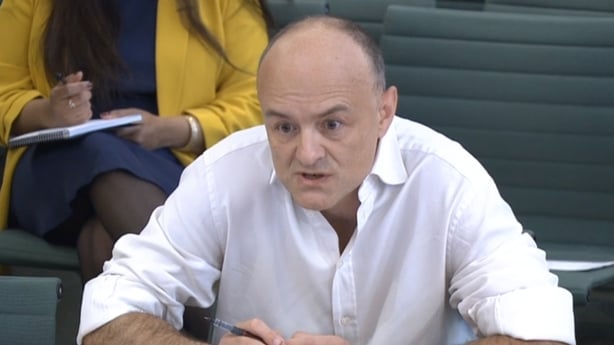
Lockdown
Who will ever forget the lines: "I need to speak to you about coronavirus", delivered from Washington by then Taoiseach Leo Varadkar on 12 March 2020.
The lockdown came hard and fast, with the closure of schools, colleges and childcare facilities. Large indoor and outdoor gatherings were cancelled.
People were asked to work from home where possible. The measures came into effect at 6pm that day. And the rest, we became all too familiar with. The weather was beautiful but the national mood darkened.
This approach contrasts starkly with the attitude to a lockdown in the UK. In his evidence to the UK inquiry this week, Dominic Cummings painted a picture of the government there opposed to lockdown, because of fears it would wreck the economy and people.
There was also a view within some of the scientific community advising UK government that the modelling of the virus allowed time to think about what to do. The "peak" was projected at about June.
So while Ireland went hard on lockdown early, Britain delayed it and other important measures for some weeks, with significant consequences.
According to Mr Cummings, tens of thousands of people died, who did not need to.
The day after the Taoiseach's address to the country here from Washington, in the UK there were some great fears. According to Mr Cummings' evidence, on Friday 13 March last year, former deputy Cabinet Secretary Helen MacNamara warned a room of senior officials "we're f***ed".
Mr Cummings also observed that if the UK had not locked down eventually, the reality is people would have locked themselves in their houses out of fear, especially as the NHS would be unable to cope and the images of what was happening in northern Italy were terrifying.
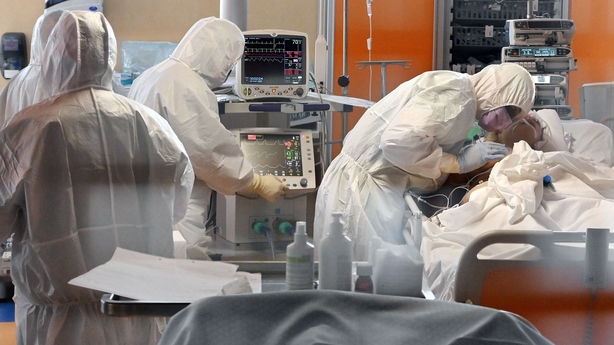
Flattening the curve
The idea behind the lockdown here was to suppress the virus, prevent it from taking off or flattening the curve. That is obviously very different to a "let it rip" and achieve herd immunity approach.
When Leo Varadkar made his remarks on 12 March, the National Public Health Emergency Team had just warned that "there has been a significant increase in recent days in the number of cases detected in Ireland, a number of clusters in hospital settings with some cases in intensive care and a number of cases arising from community transmission".
The additional measures introduced by Ireland to flatten the curve included self-isolation for people with symptoms, reducing social contacts and asking the elderly to stay at home as much as possible.
In Britain, the pubs and restaurants remained open, and notably the Cheltenham racing festival went ahead.
The UK approach appears to have been based on a view that lockdown was not possible and that suppressing the virus would just delay an inevitable peak later. That has been described as a catastrophic mistake.

NPHET versus SAGE
Here the National Public Health Emergency Team (NPHET) was set up on 27 January 2020. Arguably, it is now better known than Bono, Katie Taylor or Liam Neeson.
In Britain, the comparable body was the Scientific Advisory Group for Emergencies (SAGE). It is also well-known now, but came under intense criticism from outside medical and scientific experts.
NPHET here and some of its key members became significant public figures. It has held regular weekly or even bi-weekly media briefings, broadcast to anyone who wishes to watch the proceedings.
Journalists have attended from the main print and broadcast media, and have asked questions and probed the thinking behind decisions. Often there have been more questions than journalists to ask them and limited time for questions for each media representative.
Some members of the public have felt that the questioning by the media has not been aggressive or probing enough. People have also been divided on NPHET, its reasoning and approach and indeed many of the answers its members have given.
It too has come under attack from some outside medical and scientific figures.
But NPHET briefings have been in public. There have been uneasy moments for Chief Medical Officer Tony Holohan and other members, and the minutes of NPHET meetings are published, although with some delays.
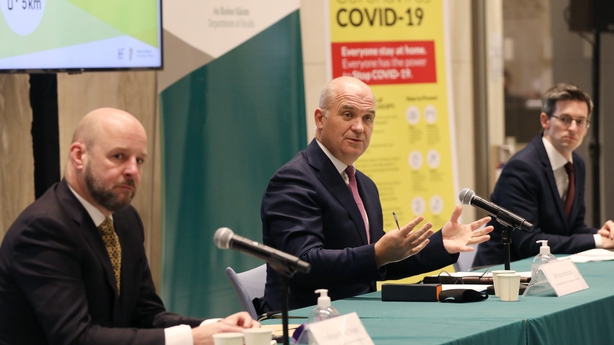
The last minutes published on the Department of Health website are for 15 April 2021. In Ireland, NPHET advice to Government is published a week or two after the Government has received it.
In comparison, SAGE in the UK has been viewed as secretive. There were also Downing Street advisors on it.
This week, Dominic Cummings said he believed that the modelling system it used should have been published, so that the public could analyse it.
In April last year, there was criticism that the membership of SAGE and the advice it was giving government was kept secret.
In June 2020, SAGE published the scientific evidence supporting the government response to coronavirus.
According to SAGE: "The evidence was often complied very rapidly during a fast-moving response and should be viewed in this context. The papers presented here are the best assessment of the evidence at the time of writing, and their conclusions were formed on this basis."
SAGE has published updated material ever since, along with the minutes of meetings. Another body, Independent SAGE was set up by people who were unhappy with the UK approach.
One of those involved is public health expert Dr Gabriel Scally, who is well-known here for his various inquiry work.
Independent SAGE was set up to offer public analysis on coronavirus as it viewed the UK government body was either too slow or had failed to provide its analysis behind certain decisions.
Antigen testing
There has been much controversy here about the slow roll-out of rapid Covid-19 tests, antigen tests. An expert group set up by the Government was in favour of wide use but there was a split in the group and it could only publish a majority report.
Much of the opposition to antigen testing is down to concerns about the accuracy of the tests and how people might interpret them. But the business community sees antigen tests as a way to help reopen society.
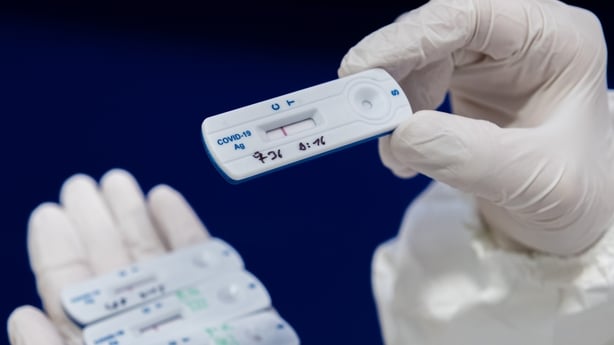
Questions have been asked as to whether the NPHET reluctance to back general use of antigen tests has also been down to a desire to control testing and keep it in the hands of the health service, in order to keep full sight of disease incidence.
We have seen differences on the issue between ministers and public health officials on the use of antigen tests.
Ireland is not alone in this. Dominic Cummings gave evidence this week about the marked reluctance of the UK authorities to embrace antigen testing, too.
That contrasts with the EU position which backs the wider use of antigen tests. Indeed, under the EU rules on the new EU Digital Covid Certificate, the results of a rapid antigen test can be used, once it is on the list of accepted rapid antigen tests.
Vaccination roll-out
Ireland is in a better place now with the vaccination roll-out than some months ago, when there was much criticism about what was viewed as the slow pace.
But there are still concerns about the promised supply of the single-dose Johnson & Johnson vaccine as well as more delays with the AstraZeneca jab.
Notably, this week, Minister for Health Stephen Donnelly told the Dáil it was unclear if the target of giving a first vaccine to 82% of all adults here by the end of June will be met.
The official position is that if it is missed, that will just be by a matter of weeks.
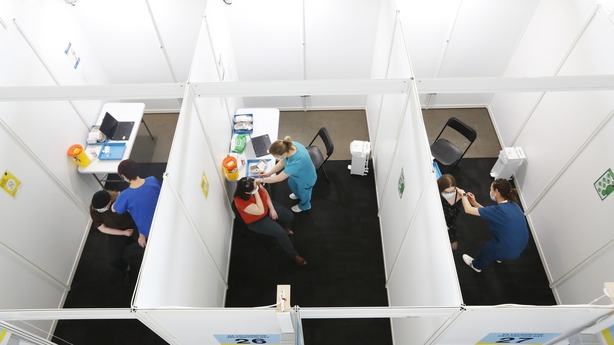
In comparison, the UK success in its vaccination programme is notable. Observers believe this may also take some of the sting out of the criticism of Boris Johnson in the ongoing UK inquiry.
Of course, the UK had a big head start with vaccination and access to the AstraZeneca vaccine, which was developed in the UK, with the aid of the University of Oxford.
The first dose administered in the UK was the Pfizer-BioNTech vaccine on 8 December last year. Here the first dose was administered on 29 December. Ireland has also been badly hit by delivery delays.
The HSE dodged a big bullet in recent weeks, given that the cyber attack did not get into the separate vaccination registration and administration system. That would have been a disaster.
Personal Protective Equipment
Both Ireland and Britain had major problems in the early stages securing sufficient personal protective equipment (PPE) for health staff. Ventilators were also in big demand.
Here, I was contacted by a number of companies wishing to supply PPE and other materials to the HSE. Some companies felt they could not get anywhere as there was too much bureaucracy or red tape or too many agencies to deal with to get a definitive decision.
From the HSE's perspective, it needed to ensure all materials and equipment met certain standards.
In Britain, its Department of Health apparently turned down ventilators as the price went up. They also wanted to ship PPE rather than get it faster by plane, as shipping was the old tried and tested system for years.
Obviously we have still to hear all the evidence from the UK inquiry and then see the final report before a complete picture can be had.
Here, it may be some time before any inquiry into the handling of Covid-19 gets started.
There will be many questions. But as was observed this week, even the best minds in the world would not have got it all right with the coronavirus pandemic. Hindsight is useful but also flawed.
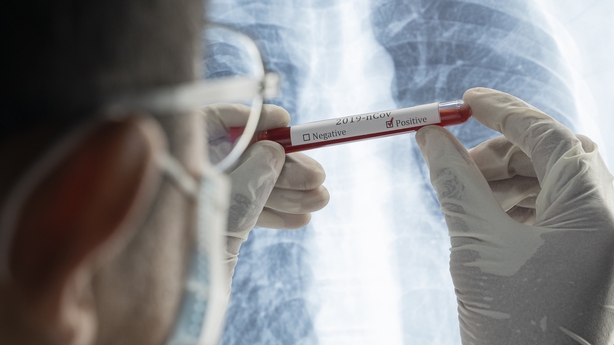
However, serious lessons must be learned about how we approached this pandemic, so that there may be fewer deaths and illness, and less devastation wrecked on society, if or when another one comes along.
The summer is coming, with a sweep of light, to burn away the darkness we have all felt, in our own different ways.
We have journeyed together and we have journeyed alone too.
But we must also learn the lessons of this historic period, for the benefit of the next generations.
So people can be better prepared, for whenever the next pandemic comes.
I think you will agree, a pandemic once in a lifetime, is one too many times.







